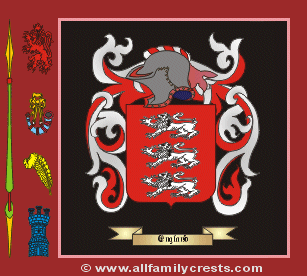The Origin of England’s Name
The Migration of Germanic Tribes to Britain
The Angles were originally a small Ingvaeonic tribe from around the Schleswig region of Germany, often trading with the neighbouring Frisians, Jutes, and Saxons, whom would come to be their fellow brethren in colonizing Britain. It is widely believed that the Angles were desperate in their maritime conquests due to their lack of farmland to suffice for the requirements of the tribe, and their continuous wars with their neighbours. This is evinced by the first records of a coordinated Anglisch invasion, where Hengist and Horsa, who were recorded to have pillaged the coast near Suffolk, and carried off the daughter of the King of the Britons. After the arrival of the Angles and their establishment upon the East Coast of Britain, the Saxons arrived in modern-day Sussex and began pushing the bulk of the Britons to Cornwall and Wales. The motives of the Saxon invasions are quite luculent, for at this time, millions of Germans from the Elbe, Irimones they are called, moved through Saxon territories along the Wesser, and applied a migratory pressure. The Jutes, from Jylland in modern-day Denmark, settled Kent, the very eastern tip of England. Their migration is attributed to immense pressure from the Danes, prompting them to abandon their homeland and migrate elsewhere.
Britain’s Fertile Lands Attracted Settlers
Britain was a particularly suitable area for agricultural industries, as its climate was more temperate than semi-arctic, and the fecundity of the land had been cultivated and refined ever since early Roman times. Promises of a fertile paradise drove the Anglo-Saxons, particularly the Angles, who arose to establish the largest and most powerful kingdoms of post-migration Britain, such as Mercia, East Anglia, and Northumbria, the greater part of the landmass, while the Saxons and Jutes were left in the south with a smaller, but more fertile chunk of the prosperity.

The Rise of the Kingdom of England
The first true king of what was to become the Kingdom of England was Alfred the Great - but he styled himself as Rex Angulsaxonum, the King of the Anglo-Saxons (back in those days, you called yourself the king of a people, rather than king of a country). It was his grandson, Athelstan, who called himself Rex Anglorum, the King of the English. Why, if both were originally Saxons, rulers of Wessex and other Saxon lands?
The Supremacy of the Anglian Kingdoms
The thing to remember is that, in the time just before Alfred, Wessex was far from being the most powerful Anglo-Saxon kingdom. That title belonged, for at least two centuries, to Mercians and Northumbrians - the kingdoms of the Angles. By the time of Alfred, Mercia and Northumbria were ravaged, and largely conquered, by the Danes. Wessex was the last one standing, but it needed an alliance with the Angles of Mercia to survive and fight back.
Why the Name “England” Prevailed
The contemporaries on both sides knew well what the situation was: for the alliance to thrive, the traditional supremacy of the Angles had to be recognized, in some way, even if it was the Saxon kings who led the victory against the Danes. For Alfred and Edward, a joint title “king of Anglo-Saxons” was enough, while the war was hanging in the balance and their territory encompassed only Wessex and parts of Mercia; but Athelstan, having reconquered all of Northumbria, had to take the title of the Anglian kings, otherwise the Saxons would appear as just another occupying force on the Anglian lands in the north, not much better than the Danes.
The Name England Took Root
It took over a century before we find the phrase Engla lande referring to the whole country, by the writers of the eleventh- century Chronicle. There was then a long period of varied usage, and we find such forms as Engle land, Englene Ionde, Engle lond, Engelond, and Ingland. The spelling England emerged in the fourteenth century, and soon after became established as the norm.
Preventing Saxon Domination
The reason for the Anglicization, rather than the Saxonization of Britain, may be attributed to something that I mentioned earlier in this answer, about how the Saxons did not, by any means lose their foothold in Germany. well, their continental lands came to be known as Sachsen, or Saxony, and in the future, there would be three Saxonies, Saxony-Dresden, Lower Saxony, and Middle Saxony. A fourth would complete a paradoxical masterpiece, especially if it were a sea away, and generally dominated by another tribe.
